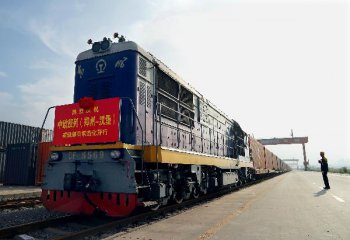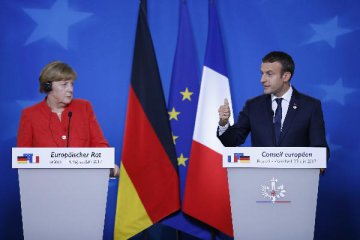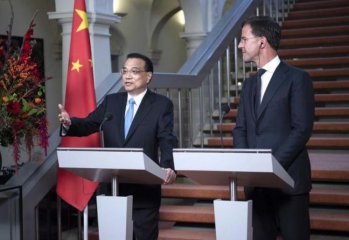
In a world of growing protectionism and unilateralism, Asia and Europe share common ground on free trade and have to take joint action to boost cooperation and regional connectivity.
For months, despite strong opposition from the international community, the United States opened fire at its trading partners by using tariffs as a tactic.
Washington's irresponsible approach, a blow to globalization, damages the rule-based trading system and threatens hard-won global economic recovery. What's more, it goes against people's will and endeavor to pursue a more prosperous future.
Faced with such a scenario, the international community needs determination and practical actions.
Situated on the world's largest landmass that contains more than two-thirds of the world's population, Asia and Europe are both major global economic blocks and stabilizing forces. It is in their interest to safeguard free trade and multilateralism and build a more open and integrated world.
According to figures from the European Council, Eurasian partners currently represent around 55 percent of global trade as well as 65 percent of the global economy.
Undoubtedly, there is still a wide range of growth opportunities for them to discover.
Asia and Europe are natural partners. Geographically, Eurasian countries can conveniently establish closer ties with their neighbors and other nations. The ancient Silk Road served as an important means for the Eurasian people to embrace the outside world.
As the world economy is experiencing downward pressure, both Asia and Europe need more driving forces to maintain sustainable growth and development. Facilitating free trade and investment among each other, for example, is one of the efficient ways to realize their goal.
The Asia-Europe Meeting (ASEM) summit, the largest inter-governmental platform in Eurasia, will provide an opportunity for partners to seek closer cooperation to tackle challenges facing free trade and multilateralism.
Chinese Premier Li Keqiang, who is on a nine-day Eurasia trip, will attend the Oct. 18-19 meeting in Brussels, home to the European Union headquarters. Li's trip definitely shows China's expectation and efforts to break boundaries among countries and promote connectivity and stability across the supercontinent.
With hi-tech development and closer interactions, globalization is an inevitable trend. A country's go-it-alone approach will not be the death knell for free trade and globalization as long as others stand together to sustain them.
As staunch supporters and beneficiaries of free trade, Asia and Europe are facing an invaluable opportunity to help cement consensus on defending a multilateral world and play a key role in regional integration and global growth.























Latest comments